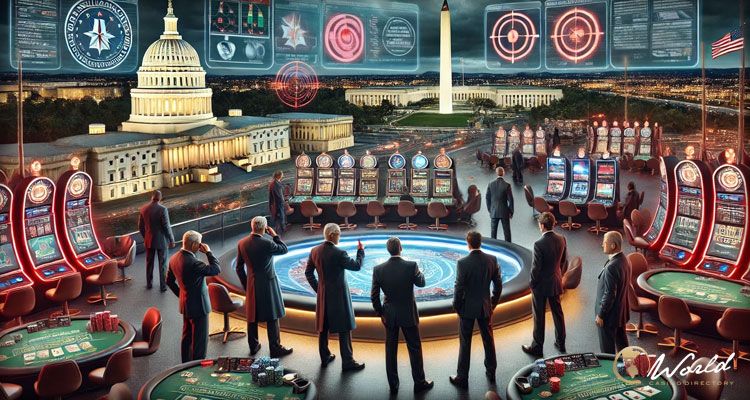A proposed casino in Tysons, Virginia, is facing strong opposition from a coalition of former intelligence and defense officials, who argue that its proximity to key government agencies could pose significant national security threats. The group, known as National Security Leaders for Fairfax, recently sent a letter to state and local officials highlighting concerns over potential espionage and criminal activity that could arise from the project.
The letter, signed by 109 former intelligence and defense personnel, including Valerie Plame, cautions that a casino in Tysons would attract both organized crime and foreign intelligence services seeking to exploit individuals with high-level security clearances. The opponents stress that the area’s dense concentration of federal employees and contractors makes it a particularly vulnerable target for espionage.
“The proximity of a Tysons casino to a significant population of government, military, and contract officials with access to highly secretive government intelligence, diplomatic, and defense information will not only attract organized crime — casinos always do — but also adversarial intelligence services looking to recruit those with such access whom they hope to blackmail,” the letter stated, according to The Washington Post.
Sen. Jennifer B. Boysko (D-Fairfax), a leading critic of the proposal, emphasized the risk of heightened exposure to gambling temptations among security personnel working in the area. She pointed out that the convenience of a local casino could make it easier for individuals to engage in gambling activities that might compromise their positions.
Fairfax County has a history of security breaches, with the infamous case of Robert Hanssen, a former FBI agent who sold secrets to Russia. Although casinos were not part of his espionage activities, gambling debts have been linked to similar cases of compromised government officials in the past.
Legislative progress and economic arguments
Despite the security concerns, the proposed casino project has gained momentum in the Virginia Senate. Senate Bill 982, which would authorize Fairfax County to hold a referendum on the matter, recently passed the Gaming Subcommittee with a 5-2 vote. The bill now awaits further consideration by the General Laws and Technology Committee.
Proponents of the project, including Senate Majority Leader Scott Surovell (D-Fairfax), argue that fears of espionage are exaggerated. He believes the existing availability of gambling options nearby, such as the MGM National Harbor in Maryland and various online betting platforms, makes it unlikely that a Tysons casino would introduce new risks.
“We already have a massive slots parlor 45 minutes west in West Virginia, MGM right over the river, and sports gaming on every phone in the state,” Surovell said. “So I guess the Chinese already know everything.”
Supporters, including the Northern Virginia Chamber of Commerce, argue that the casino could generate substantial revenue and create thousands of jobs. Comstock Holding Cos., a real estate developer backing the project, envisions a mixed-use entertainment district featuring a luxury hotel, convention center, and concert venue. They estimate potential annual tax revenues of $400 million to $500 million.
Community and political response
Local officials and residents remain divided on the issue. Fairfax Board Chairman Jeffrey C. McKay (D-At Large) has expressed concerns over the lack of community engagement prior to the bill’s introduction. In a letter to state lawmakers, cited by Patch, McKay noted that the county had not sought the authority to hold a casino referendum and that the state would receive the majority of gaming tax revenue.
Supervisor Dalia Palchik (D-Providence), whose district includes the proposed site, has yet to take an official stance, while other board members have voiced apprehensions regarding potential impacts on traffic, crime, and the region’s economic landscape.
The debate is further complicated by lobbying efforts on both sides. Comstock and affiliated political action committees have made significant contributions to state lawmakers, while competing casino operators, such as MGM Resorts International, are actively working to oppose the project.


